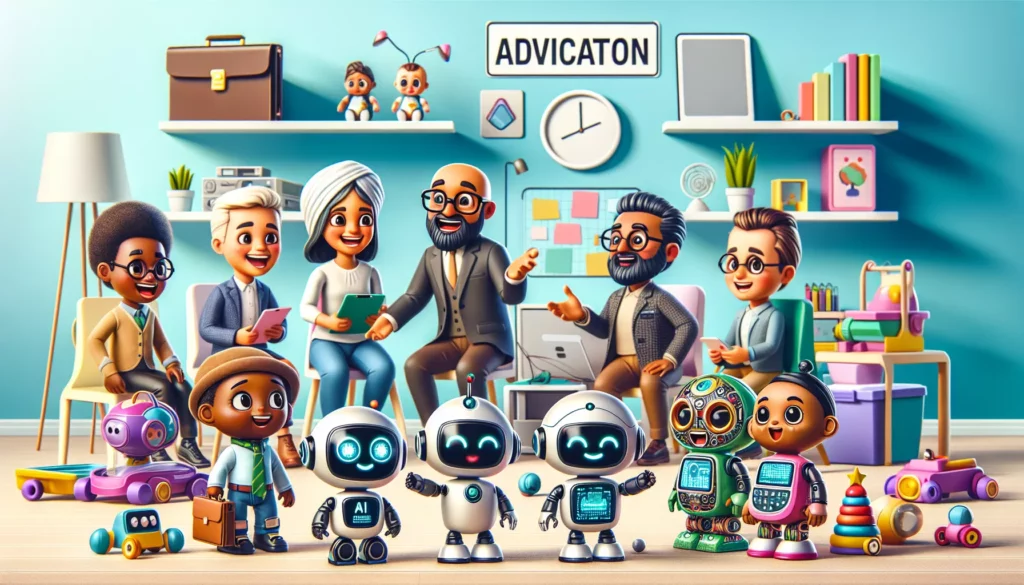Mattel to Introduce AI-Enhanced Toys: Concerns Raised by Children’s Rights Advocates
Toy manufacturer Mattel has recently entered into a strategic collaboration with OpenAI to develop AI-driven toys. However, this initiative has drawn reservations from digital rights advocates.
In a recent press release, Mattel, the owner of the iconic Barbie brand, revealed its partnership with OpenAI, the organization behind ChatGPT. The company stated that by leveraging OpenAI’s advanced technology, it aims to enhance play experiences for children while prioritizing innovation, privacy, and safety.
While specific product details remain limited, Mattel asserted its commitment to incorporating new technologies into its offerings in a manner that is “safe, thoughtful, and responsible.”
Advocacy groups have responded with warnings about the potential implications of such a partnership. Robert Weissman, co-president of the public interest organization Public Citizen, urged Mattel to reconsider the integration of AI technology into children’s toys, citing the inability of young children to discern between reality and imaginative play.
“Mattel should announce immediately that it will not incorporate AI technology into children’s toys. Children do not have the cognitive capacity to distinguish fully between reality and play. Endowing toys with human-like voices and engagement capabilities risks inflicting real psychological harm, undermining social development, and interfering with peer relationship formation, ultimately posing risks of long-term consequences.”
Concerns surrounding the impact of AI on young minds are supported by research from esteemed institutions, including Harvard and Carnegie Mellon, which have highlighted the adverse social effects and a tendency among children to attribute human-like characteristics to AI systems.
A tragic case that underscores these concerns involved 14-year-old Sewell Seltzer III, who died by suicide after interacting with chatbots that enable users to create AI characters. Following his engagement with the service, his mother, Megan Garcia, recounted a decline in his mental health, which included sleeplessness and significant anxiety, reportedly exacerbated by an obsession with a fictional AI character representing an adult from a popular television series.
While Mattel emphasizes its long-standing reputation and commitment to families, it’s essential to acknowledge previous missteps that have shaken consumer trust. For instance, the launch of Hello Barbie in 2015 involved a Wi-Fi-enabled doll that encouraged children to engage verbally, raising privacy concerns when personal conversations were transmitted to a third-party company for AI-generated responses. Following protests from child advocacy groups, along with flagged security vulnerabilities, Mattel ultimately withdrew the toy from market circulation in 2017.
Josh Golin, an executive with Fairplay, criticized the recent collaboration with OpenAI, expressing doubts about Mattel’s learning from past failures.
“It seems Mattel has learned little from the failure of its Hello Barbie surveillance doll and is now escalating threats to children’s privacy, safety, and well-being. Children’s creativity flourishes through imaginative play powered by their own minds rather than by AI. Given frequent instances of AI inaccuracies, there is little confidence that the safety measures proposed by Mattel and OpenAI will be effective.”
Another significant incident that compromised parental trust occurred in November 2024, when a packaging error mistakenly directed owners of the ‘Wicked’ doll to an adult website instead of a promotional site related to a film. This serves as a reminder that despite good intentions, technology companies can make critical errors.
Ultimately, the decision to expose children to AI-enhanced toys rests with parents. While the integration of AI into daily life is virtually inevitable, a crucial question remains: are these technologies sufficiently refined and secure for use by children?
We do not merely report on cybersecurity threats; we actively work to eliminate them. Safeguard your devices and prevent threats from extending beyond headlines by implementing robust cybersecurity measures today.








